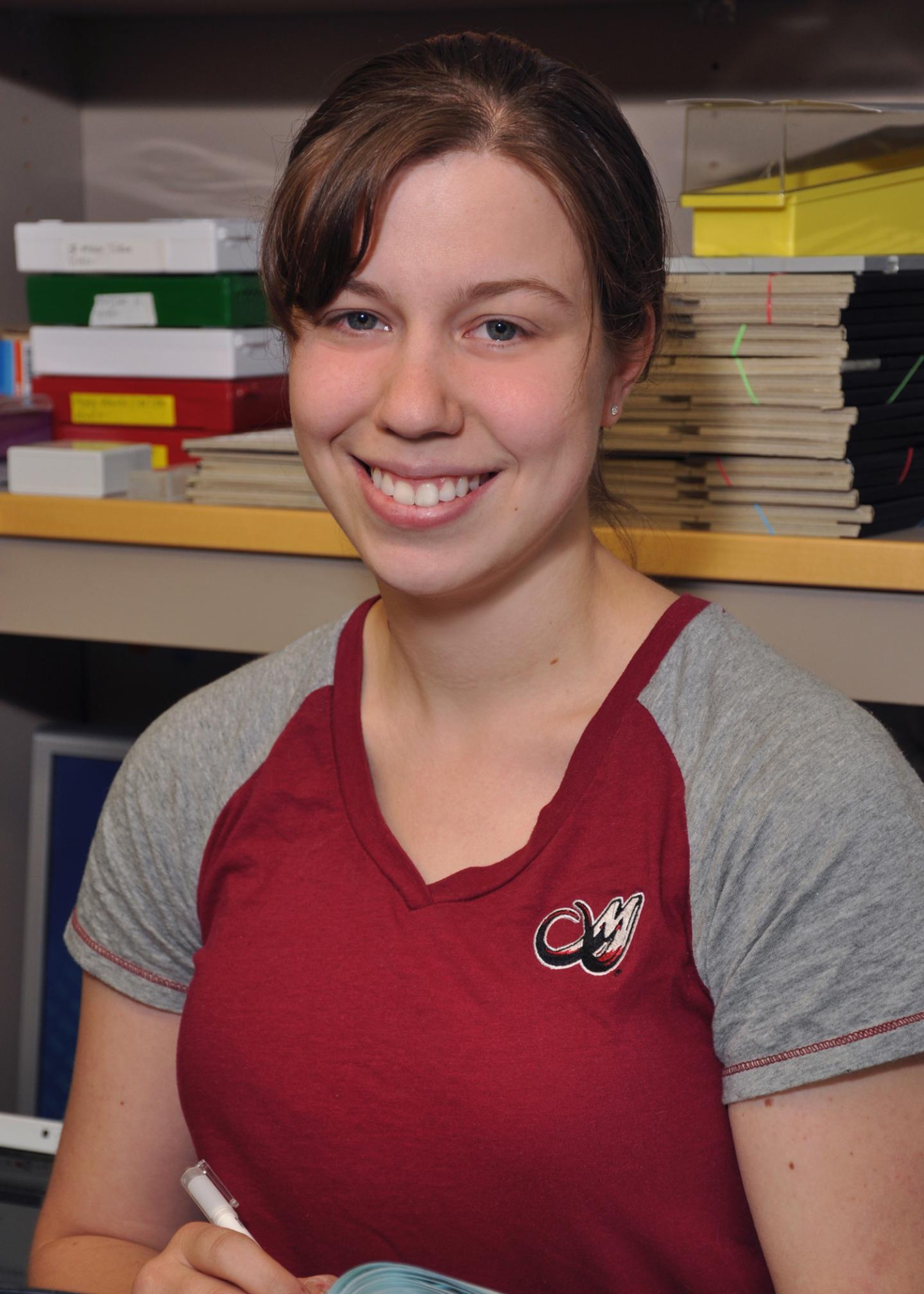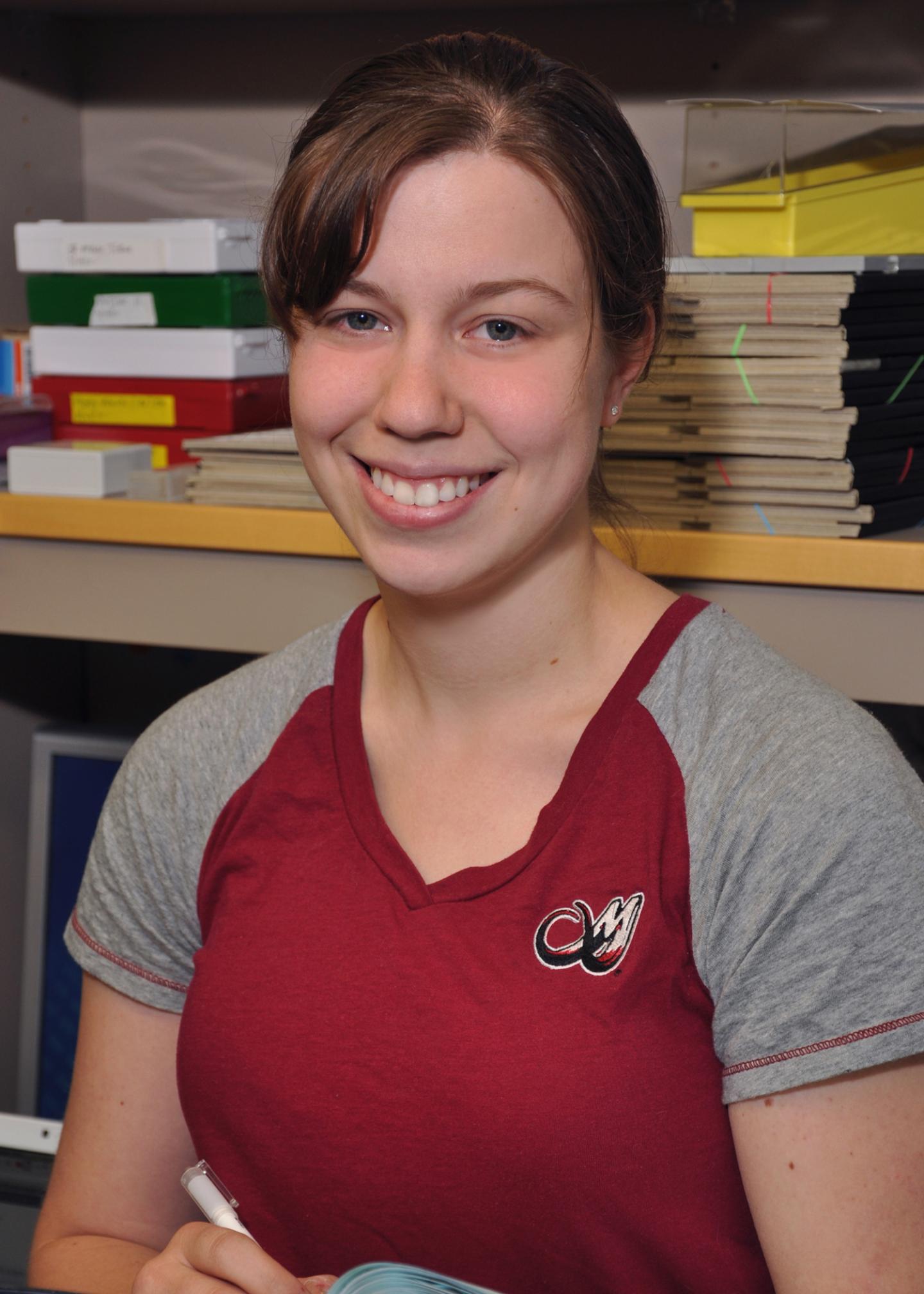
Credit: University of Colorado Cancer Center
By the time Ewing's Sarcoma is diagnosed, primarily in teens and young adults, it has often spread from its primary site to other parts of the body, making it difficult to treat. A University of Colorado Cancer Center study published in the journal Oncogene pinpoints a protein that may be essential to this spread – when researchers knocked down the protein KDM3A in Ewing's Sarcoma tumor cells, one of a family known as Jumonji proteins, they also inhibited the cancer's metastatic ability.
"A cell has to be able to move in order to infiltrate new tissues. We show that KDM3A is an important part of this cell motility," says lead author Marybeth Sechler, graduate student in the lab of CU Cancer Center investigator Paul Jedlicka, MD, PhD.
The Jedlicka lab had previously identified KDM3A as a tumor promoter in Ewing's Sarcoma, and the current study extends this work to show the protein's role in the cancer's ability to metastasize. Specifically, the group used global gene expression profiling to show that the presence of KDM3A up-regulates pathways known to be involved in migration and metastasis.
Additionally, the group looked downstream from KDM3A to show that another protein known as Melanoma Cell Adhesion Molecule (MCAM) may be another essential link in the chain of events that leads to metastasis. When the group knocked down MCAM, it had a similar effect against metastasis as knocking down KDM3A. And when MCAM was left intact, cancer cells were able to use this MCAM to partially avoid the effects of KDM3A knockdown.
"We were looking for potential candidates to target in the metastasis of Ewing's Sarcoma that might be druggable, and now we have two," Sechler says.
As a whole, the family of Jumonji proteins is involved in histone demethylation – a mechanism that affects gene accessibility and expression. Sechler says the family is an especially attractive target for cancer therapeutics because, "one demethylase can affect a larger group of genes. If we can find functions that promote or act against cancer, we could affect whole gene programs."
Previous work has shown that pan-Jumonji inhibitors – those drugs that silence the function of the entire family – may act against cancer without necessarily acting against healthy cells.
"You can treat non-cancer cells with it and they seem to do okay," Sechler says.
The lab's next steps are to evaluate the use of Jumonji inhibitors against Ewing's Sarcoma, while also further unpacking the mechanics of MCAM.
"We want to know what pathways it's feeding into and how, in turn, these pathways are promoting the cancer," Sechler says. "This could be an important step toward identifying better targets for treating this disease."
###
Media Contact
Garth Sundem
[email protected]
@CUAnschutz
http://www.ucdenver.edu
############
Story Source: Materials provided by Scienmag





